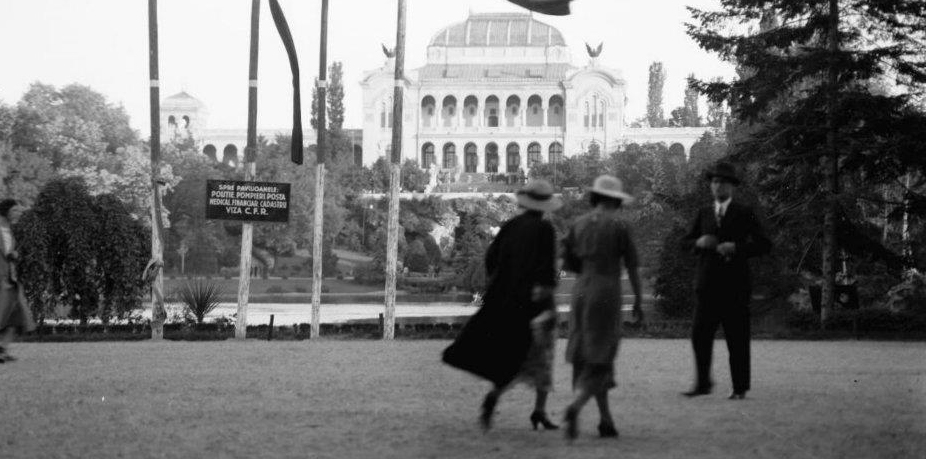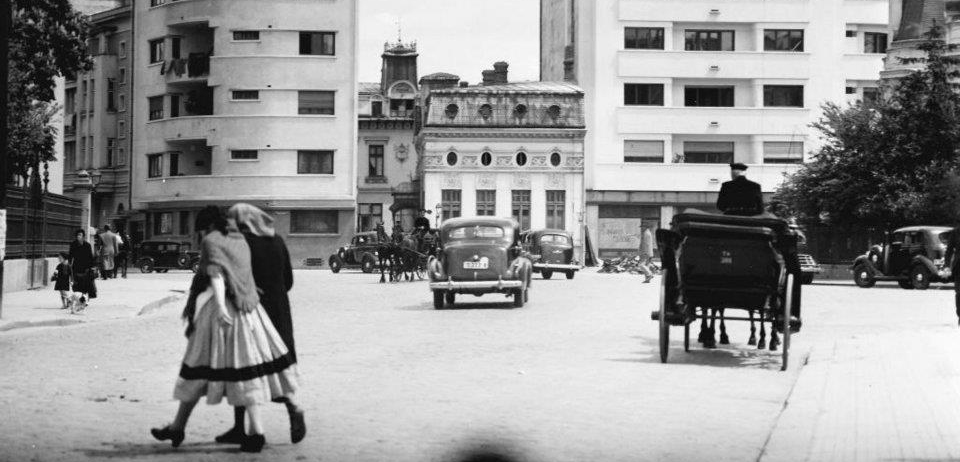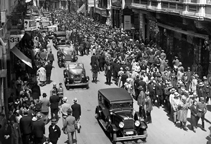Scope
The project will deal with the activity of foreign diplomats in Romania (plenipotentiary ministers, the staff of legations and consular offices) in light of the individuals’ experiences of socialization and high-society/fashionable customs. Towards the end of the 19th century, Romania’s capital city became a significant destination in a diplomatic career, or a sort of springboard for ambassadors, to quote a widely used phrase of the time. The court of King Carol I placed a particular emphasis on connections with foreign diplomats. Diplomatic representation took mostly the form of audiences scrupulously prescribed in compliance with the existing customs and protocol, however personal affinities did not preclude, based on the current political agenda, any preferential relationships from being established. Berlin and Vienna – wrote the future Queen Mary – ranked first, behaviour to France was courteous, while Russia, albeit apparently unreliable, was treated in a most careful and polite manner, however it was a kind of politeness arising from concern rather than benevolence. England, remote at the time, maintained no close relationship with Romania, as the two countries shared few common interests (Mary, Queen of Romania, p. 25). Foreign diplomats would discover in Bucharest a new world, a cosmopolitan aristocracy, unlike in any other Balkan capital city. “In Bucharest I was stunned – writes Petăr Neikov, new second secretary of the Bulgarian Legation (1909) – by the resplendent sights, while crossing, with my modest luggage in a coach, the side streets downtown, on my way to the legation. Crowds everywhere, as usually to be found in any European town, gold-embroidered uniforms, hats with magnificent feathers, swords sparkling in the sun, tail coats and top hats, medal-covered chests, fancy carriages with snazzy ladies, coaches of the headmost coachmen in town, trumpets, brass bands, flags… I just wondered if all this bode well for my service in Bucharest” (Петър Нейков, София, 1990, с. 138). In this world that happily mixed the Western lifestyle with the Oriental traditions, foreign diplomats behave like a community of interests with a well-defined conduct, a world whose identity is not far removed from the identity of the officer or marine corps. Always away from their native country, they shared a communion of destinies, the social dimension of which ought to be recovered historiographically.

I. 2 Challenges
Any attempt to reconstruct the socialization forms typical of modern diplomacy is bound to encounter specific obstacles in the horizon of historical research. The researcher is still deeply concerned to observe, after a progress in both time and space, the manner in which education, mores, intellectual acquisitions, the cultural environment, religious beliefs can influence the societal discourse on the diplomats’ world and the diplomats’ perception of the elite and society as a whole. The world of foreign diplomats appears in the public space as a distinct entity (the diplomatic corps) but concurrently manifests itself through personalities as a historic presence. Having been educated in top-rated schools, diplomats stand out thanks to their specific qualities, and are defined by innate sentiments and mindsets. The attempt to investigate the sources involves specific challenges itself. Both the celebrity/society press and autobiographic literature require a thorough critical examination. The media, particularly well-established newspapers, consistently influenced the public opinion trends in pre-1914 Romania. The Old Kingdom sees the spectacular development of an aggressive celebrity press, besides the existing informative newspapers or central dailies. In L’Independance Roumaine, the articles penned by a certain Claymoor provide the daily fix of titbits from Bucharest’s high life. In what is far from being a singular case, the newspaper covered arguments, squabbles, illicit love affairs and rumpuses involving foreign diplomats. However, media comments were sometimes marred by bias. As is also the case with memoir literature, the historian must make the most precautious use of media as a documentary source. The historian is not a mere media reader, but a genuine analyst. Media information requires a critical examination and additional verification, which help elucidate contextually the hidden agendas and the emotional involvement of journalists when dealing with specific events. Moreover, one cannot leave out the paper’s editorial policy, its autonomy in relation with the existing powers-that-be, and the political parties’ current policies. Autobiographical literature has a hard-earned legitimacy itself. Factors such as the fragmentary nature of discourse, the principle of simultaneity, unconditional ambiguity, distance between the time of living and the time of writing, cause „hardliner methodists” to deny any scientific value of personal writings. Therefore, we shall accept autobiographical literature as source of knowledge by assuming a two-fold subjectivity: the writer’s subjectivity and, unavoidably, the researcher’s subjectivity.

I. 3 Limitations of current approaches
Unlike the existing trends worldwide, the history of diplomacy in Romania has always been connected to the domestic/local picture. At least, as far as the pre-war period (pre-1914) is concerned, Romanian historiography can’t be looked upon as seriously suffering in terms of quantity. However, a critical investigation would reveal a good deal of insubstantiality, superficiality and severe discontinuities. What has been truly known until now? A history of the Romanian diplomatic representative offices (by Gh. Cazan, Constantin G. Florescu, Dan Berindei, 1967-1973) that is rather compendious, but, in the absence of alternative choices, still functional; a history of the Romanian diplomacy that does not go further than the moment of national independence (Dan Berindei, 1995). These were doubtlessly efforts connected to a certain internationally relevant thematic horizon (Cecil Lamar, 1976; Whitcomb, Edward A., 1979), however less productive in terms of continuity. By the time of publication by a highly regarded collective (Dinu C. Giurescu, Rudolf Dinu, Laurentiu Constantiniu, 2010) of an illustrated history of the Romanian diplomacy dealing with the 1862-1947 interval, almost 15 years had passed by! An obvious historic gap separated Romanian historiography of recent decades from the current international trends in the history of diplomacy (Mai’a K. Davis Cross, 2006; Sir Ivor Roberts ed., 2009). Therefore, diligent albeit overdue efforts have been made. Save for a few exceptions (Daniel Cain, 2007), monographs of illustrious Romanian diplomats are still missing. A cultural history of the Romanian diplomacy, also connected to the current European trends, (Markus Mȍsslang, 2008) still remains to be written. (See the references in the bibliographical list). The foreign diplomatic corps is a world in many ways silent and scarcely known in terms of social history. The proposed theme has not been approached by any in-depth research in the space of the Romanian historiography. The history of diplomacy has remained ever-present and all-powerful. It reconstructs, once clerical documents have been properly interpreted, the genesis and conduct of foreign policy strategies. More often than not, the end product of the research has been reflected in the content of an event-based history that describes the routine activity of the diplomatic corps. Due to the prevailing political factors, diplomatic history inevitably provides a limited space for the reconstruction of social life experiences. The presence of foreign diplomats in the Romanian society remains a complementary episode, as historiographical approaches confine the freedom of action of a plenipotentiary minister to royal audiences, talks with the head of government, meetings with the minister of foreign affairs. This can be explained by reasons pertaining to the customs of diplomatic representation and protocol. Acting as representative of a sovereign at the court of another sovereign, a plenipotentiary minister is not supposed to interact with the hierarchically lower society. Frequenting other social tiers comes across as inappropriate and places the trespassing diplomat in a difficult situation. In order to secure both information and control, foreign diplomats actually overstep bureaucratic bounds. They seek to forge new relations and broaden the scope of their social contacts, and therefore take up a difficult mission requiring communications skills, financial stability and a worldly education.

